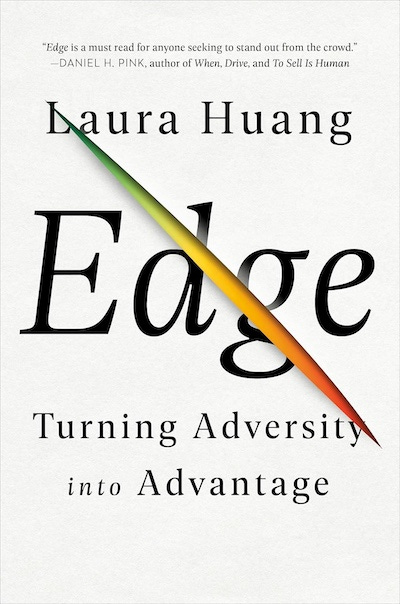From the Pages of EDGE #1: What Gets Investors to Bet on You
Over the last 10 years, I have met and interviewed more than 500 entrepreneurs and over 350 investors. I often ask entrepreneurs to describe what they believe is the single most important quality that investors are looking for in them. Their answer: passion.
For the investors, I similarly ask them to describe what they believe is the single most important attribute that they look for in making their investment decisions, and again, overwhelmingly, it’s passion. Some, like Mark Suster, state it immediately: “the goal is to invest in passionate entrepreneurs.” “That’s it, end of story. Passion,” he often says, unapologetically.
Other investors will describe it in a more offhanded manner, for example, one investor who once told me: “I want someone who, at 4 o’clock in the morning would be able to not to go to bed because they are so excited.”
Another shared: “This gal, she would light up when she talked about her business. She was so interested in anything that I would say…she just had to make it work and the intensity of her passion was just obvious.”
Still others try and provide more of a philosophy to back up their assertion, explaining what this passion means and why it is so important to them:
“Ninety percent of success in anything - comes from just giving a shit. The older I get, the more amazed I am at how many entrepreneurs just really don't. Ten percent is skill and luck, but just caring enough, having passion about something means that they will do their best. If they have passion, they will not fail one way or the other, and that matters more than you can imagine.”
In my research, I’ve tested this factor—the perceived passion of an entrepreneur—and investors are right. It does matter. It is actually one of the most significant factors in determining who receives startup funding. I’ve found that entrepreneurs presenting in pitch competitions who are rated high on passion by investors are 7.4 times more likely to receive funding than those who are rated low on passioncxxi. In fact, perceptions of passion compensated for poor performance and weak objective data on the venture—things like profitability, product performance, and market size.
It’s no wonder that entrepreneurs feel the need to show passion when they are presenting their ventures to investors—and I often get asked by entrepreneurs how they can do it. And other scholars have tried to pinpoint what passion is. For example, Melissa Cardon, a professor at Pace University, who along with several colleagues who also study entrepreneurial passion, defines it as “an entrepreneur’s intense positive feelings that [are] the result of their engagement in entrepreneurial activities.”
The influence of such passion is that it presumably impacts an investor’s own levels of passion–whereby investors have a change in their own internal emotions.
I’ve heard this echoed by investors as well, who say things like: “He was so passionate about it, that it made me passionate about it. I could feel myself getting excited in the same way he was.”
So to gain an edge, at least in the startup world, the trick is being self-aware and pinpointing how you can demonstrate your passion in a more focused, self-enhancing manner, right? Well, not exactly.
First off, what I’ve discovered is that in the minds of investors, they don’t actually know what they’re referring to when they say that they want a passionate entrepreneur. That is, investors don’t agree on what passion is—different investors have different definitions of what passion means. Some investors think it’s about an entrepreneur demonstrating passion for the vision of the company—that you believe in what you’re working on. Other investors think it’s about demonstrating commitment—having the type of passion that can sustain you through the rough cycles. Some investors see these as being linked, while others argue that it’s two entirely different things. So as an entrepreneur, you might be trying to enhance in the very ways that would turn one investor on, and turn another investor, well, very much off.
But it’s not just differences between investors—where one investor thinks passion means X, while another investor thinks passion means Y. Often, when I pushed individual investors, even gently, to define what passion is, they couldn’t. To illustrate: one day an investor told me that he doesn’t invest in anyone who doesn’t have passion. But then, not more than 5 minutes later, when I asked him to tell me about an entrepreneur who he decided not to invest in, even though all the objective business data was telling him that it was a good investment, he started telling me: “well, there was this one guy who looked like he had had waaaay too much coffee. He was so passionate, and I couldn’t invest in him.” People might think they want one thing, but that can change at any time.
Not only do people not know what they are looking for in others, they’re not even likely to notice even if you feel that you are being particularly illustrious in demonstrating your passion or charisma, as it were. This type of “spotlight effect” occurs everywhere. As humans, we all tend to forget that although we are all at the center of our own world, we are not the center of everyone else’s. We drastically overestimate the effect we have on others.
We need to train ourselves to redirect that spotlight and get people emotionally invested in people other than themselves. Guiding entails being purposeful in helping others frame the attributions that they make about us.
This excerpt is from my book EDGE: Turning Adversity into Advantage. If you’d like to read more, you can find it on Amazon here.


